Of the enormous library of criticism, commentary and biography that has grown up around James Joyce's Ulysses, only three books are truly essential: Richard Ellmann's James Joyce, Stuart Gilbert's James Joyce's Ulysses (which is as close as we can come to an 'authorized' reading--meaning it should be read with at least a few grains of salt), and Don Gifford and Robert Seidman's Ulysses Annotated. These books aside, very little of the Ulysses criticism I've read has genuinely enriched my reading of Joyce's text. Hugh Kenner's Joyce books will teach you much about Professor Kenner, his likes and dislikes, but the time you'll spend reading them would be better spent re-reading Ulysses. (This raises yet again Italo Calvino's great and essential question, a question that should shake all professors of English to the bottoms of their soles: Why should we read books about books when we can read the books themselves?) Likewise, virtually all the volumes and articles written about Ulysses tell us much about the favorite critical theories of their authors but little about Ulysses that can't be learned by a close re-reading. In other words, just about everything published in the academic Joyce industry exists not to be read but to burnish its author's CV.
The somewhat distinguished Declan Kiberd, Professor of Anglo-Irish Literature at University College Dublin (Jam Juice's allmust mutter, no less) comes promising to remedy this situation, but unfortunately he fails miserably. The best thing I can say about Ulysses and Us is that it's not entirely a steaming lump of elephant dung. The cover is very well designed, and the cover photograph of Marilyn Monroe reading Molly Bloom's soliloquy is enough to "make me do love sticky," but this is one book that should definitely not be judged by its cover. If I so desired, I could list all of my disagreements with this book, page by page, but such a list would quickly run to hundreds of items and would be almost as useless as Kiberd's ill-considered production. Why do I hate this book? (And 'hate' is not too strong a word in this case.) We can start with its infinite condescension. Kiberd poses as an anti-academic academic, a regular guy who wants to show the world that Ulysses is a book for "ordinary men and women." Kiberd uses this phrase over and over (like the word "everyday," it's one of his fetishes), and every use stinks to the sky with the odor of an ivory towered twit lowering himself to lecture the proles. More importantly, Kiberd's idea of returning Joyce to his imaginary "ordinary people" (Donald Sutherland and Mary Tyler Moore?) is to interpret the book in such a way that it's easily digestible by a middle-class corporate readership. Kiberd's reading banalizes Ulysses, turning one of the great books of world literature into a Dale Carnegie primer. I'm not exaggerating. Here's Kiberd on the "Eumaeus" episode: "[Joyce's] Ulysses was not just an example of a high-risk business venture but also a sort of 'self-help' manual, in which an older Irishman teaches a younger one how to live and blossom." When I read this jaw-droppingly stupid sentence, I scrawled in the margin, "Oh Christ!--this is a thoroughly philistine reading--Kiberd isn't recovering Ulysses from academy so much as turning it over to the corporate kitsch self-improvement mentality--Joyce spins in grave." Again, I could multiply this example many times, but what would be the point? Ulysses and Us is useless. I think I'll do to my copy what Leopold Bloom does to Titbits (wipe my ass with it). Joyce's novel deserves much better than this turd of a book. And Declan Kiberd deserves to be stripped of his position at UCD and forced to beg for change from the tourists on Grafton Street. Hell, I'll give him a euro if he sings "The Croppy Boy" for me....No I won't.
Subscribe to:
Post Comments (Atom)

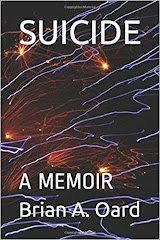



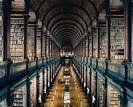
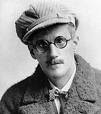

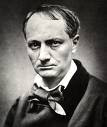
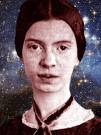
No comments:
Post a Comment